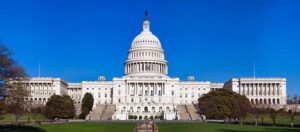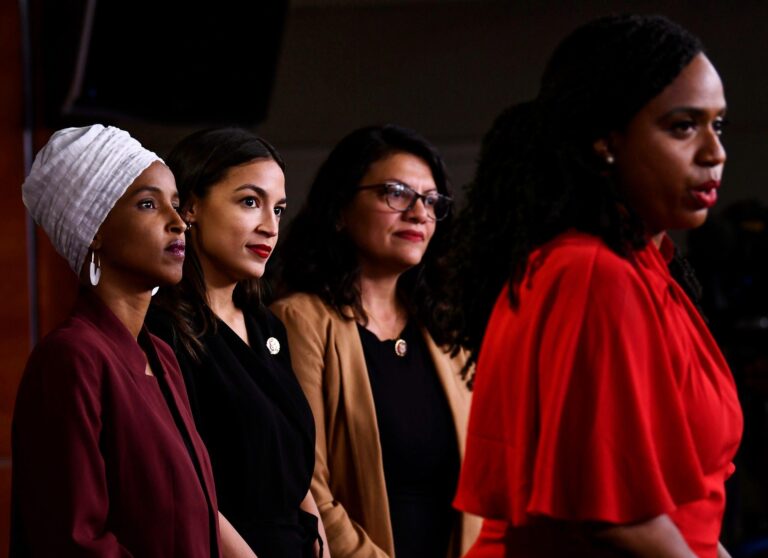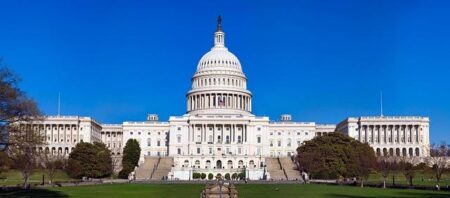Examining the Controversy Surrounding “The Squad” and Its Impact on American Politics
The Emergence and Influence of “The Squad” in Modern Congress
The group of four progressive congresswomen, popularly known as The Squad, burst onto the political scene during the 2018 midterm elections, marking a significant transformation in the demographic and ideological makeup of the U.S. House of Representatives. This cohort includes Alexandria Ocasio-Cortez from New York, Ilhan Omar representing Minnesota, Ayanna Pressley from Massachusetts, and Rashida Tlaib of Michigan. Each member brings a unique perspective shaped by their diverse backgrounds as women of color, and together they have championed a bold agenda focused on social equity, environmental sustainability, and comprehensive immigration reform.
Their rise has energized younger voters and minority populations, challenging the traditional Democratic Party establishment by advocating for policies such as Medicare for All, the Green New Deal, and criminal justice reform. The Squad’s unapologetic stance on progressive issues has made them both celebrated icons among grassroots activists and targets of intense political opposition. Their presence underscores a broader shift toward inclusivity and progressive values within American politics.
| Congresswoman | State | Primary Focus Areas |
|---|---|---|
| Alexandria Ocasio-Cortez | New York | Climate Action, Economic Justice |
| Ilhan Omar | Minnesota | Immigration Reform, International Relations |
| Ayanna Pressley | Massachusetts | Healthcare Access, Criminal Justice |
| Rashida Tlaib | Michigan | Environmental Justice, Social Equity |
- Trailblazing Representation: Featuring the first Muslim women elected to Congress and the first Black congresswoman from Massachusetts.
- Advocacy for Progressive Change: Pushing forward ambitious reforms in healthcare, climate policy, and social justice.
- Polarizing Figures: Central to heated national debates on race, immigration, and patriotism.
- Mobilizing New Voters: Energizing youth and marginalized groups to participate actively in politics.
Dissecting the Fallout from the Controversial Tweets and Their Role in Shaping Political Dialogue
Former President Donald Trump’s series of provocative tweets targeting these four congresswomen ignited a fierce national conversation about race, identity, and political discourse. The messages, widely condemned as racially insensitive and divisive, pushed the boundaries of acceptable political rhetoric and intensified existing societal fractures. Social media platforms became arenas for polarized debates, with supporters rallying behind The Squad’s progressive vision and critics accusing them of undermining American values.
The incident highlighted the power of digital communication to rapidly escalate political conflicts and influence public opinion. Key consequences of this episode include:
- Heightened Political Polarization: Discussions on immigration, nationalism, and race relations grew increasingly contentious.
- Media Spotlight: Both traditional and digital media grappled with balancing coverage and avoiding amplification of inflammatory rhetoric.
- Increased Political Engagement: The controversy spurred activism and voter mobilization on both sides of the debate ahead of subsequent elections.
| Dimension | Resulting Effect |
|---|---|
| Public Sentiment | Greater awareness coupled with deeper societal divisions |
| Legislative Environment | Escalated partisanship and legislative gridlock |
| Social Media Impact | Global trending of hashtags like #SquadVsTrump |
| Grassroots Movements | Surge in community organizing and advocacy efforts |
Responses from Elected Officials and Advocacy Organizations to the Racially Charged Remarks
The inflammatory tweets drew swift rebuke from a broad spectrum of political figures and civil rights groups, underscoring widespread concern about the corrosive effects of such language on national cohesion. House Speaker Nancy Pelosi condemned the remarks as “dangerous and unacceptable,” emphasizing the need for unity. Senator Kamala Harris called for accountability, warning that hate speech from leaders threatens democratic principles.
Prominent advocacy organizations also voiced their opposition. The NAACP denounced the targeting of these congresswomen based on ethnicity and religion, pledging to challenge such discrimination through legal avenues. The American Civil Liberties Union (ACLU) stressed the importance of safeguarding free expression while condemning rhetoric that incites hatred and division. The table below summarizes key reactions:
| Entity | Official Statement |
|---|---|
| House Speaker Nancy Pelosi | Described the tweets as “dangerous and divisive” |
| Senator Kamala Harris | Called for consequences regarding hate speech |
| NAACP | Condemned racial targeting and vowed legal action |
| ACLU | Advocated for free speech balanced with anti-hate policies |
Approaches to Mitigate and Counteract Racist Language in Political Arenas
Combating racist rhetoric in politics requires a multifaceted strategy that includes legislative, educational, and community-driven efforts. Lawmakers can spearhead initiatives that explicitly denounce hate speech and foster inclusive dialogue within governmental institutions. Public education campaigns focusing on cultural competence and anti-racism are essential to cultivating a political culture that rejects discrimination.
Social media companies must also play a critical role by implementing robust content moderation policies and ensuring transparency in how they address hate speech, especially when propagated by influential public figures. Meanwhile, grassroots activism remains a vital force in challenging racism through:
- Organizing peaceful demonstrations and community discussions to raise public consciousness.
- Backing candidates who prioritize equity and diversity in their platforms.
- Engaging in evidence-based media campaigns that debunk harmful stereotypes and misinformation.
- Encouraging constructive dialogue across ideological divides to reduce societal polarization.
| Method | Effectiveness | Primary Participants |
|---|---|---|
| Legislative Initiatives | High | Congress, Judiciary |
| Educational Programs | Moderate | Schools, NGOs, Media |
| Community Activism | High | Civil Rights Groups, Local Communities |
| Social Media Regulation | Variable | Platforms, Users |
Conclusion: The Enduring Significance of “The Squad” in America’s Political Landscape
The four congresswomen known as “The Squad” — Alexandria Ocasio-Cortez, Ilhan Omar, Rashida Tlaib, and Ayanna Pressley — continue to be pivotal figures in the evolving dialogue on race, representation, and political rhetoric in the United States. Following the contentious tweets from former President Trump, their roles have become even more pronounced, symbolizing both the challenges and progress in American democracy. As debates over identity, policy, and inclusion persist, these lawmakers’ influence on legislative priorities and grassroots movements remains substantial. Ongoing coverage will track how their presence shapes the future of political discourse and civic engagement nationwide.







